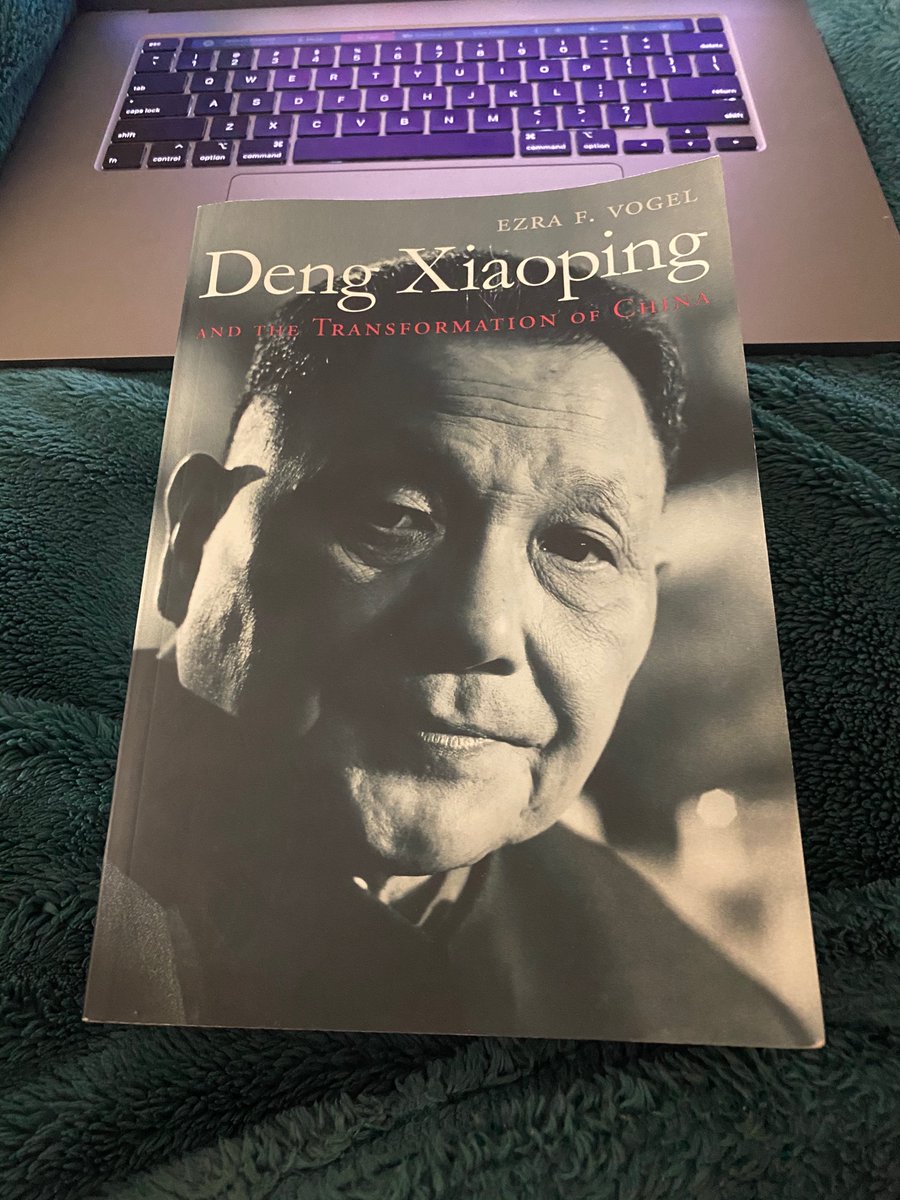Just finished the bio of Deng Xiaoping by the recently departed Ezra Vogel. Really fascinating book for anyone interested in the foundation of Modern China. I'd argue Deng was the most important statesman in the world from 1950-2000. Many lessons for India. A few takeaways (1/n)
We expect transformative leaders to be grand architects w/ a modernization vision. They should know what changes are crucial. In actuality, most have no clear agenda. Reforms - esp econ. ones - are messy, contradictory, beset by unorthodox ideas mixed in w/ many good ideas (2/n)
Deng & his Communist Party had a nebulous philosophy of "trial by error" & "do what works." Deng's early years as ruling premier were noteworthy for debacles like an economic retrenchment & abrupt cancellation of foreign contracts to husband scarce forex reserves (3/n)
Deng believed in the "population bomb" myth and enacted the 1-Child Law which could hurt China's long-run growth prospects. Deng also quixotically spent much of his country's resources trying to become a petro-state to match Saudi Arabia during the '70s (4/n).
Even Deng's good ideas like special economic zones (SEZs) were rife with problems and accusations of poor implementation. SEZs led to shortages, graft, inflation. Communist leaders demanded an SEZ moratorium and Deng would periodically accede to such demands (5/n)
Deng also deregulated prices too quickly in the early and then late '80s triggering inflation and forcing a contractionary fiscal policy. By the time Deng's tenure ended, annual growth had slowed to 3% and yearly inflation was at 25%! (6/n)
There were egregious human rights violations including the 1989 Tiananmen Square protests. There were border clashes with Vietnam & Soviets. Nonetheless, Deng modernized China and put it on the path of industrialization. The path was just more zig zag than people realize (7/n)
@narendramodi has much in common w/ Deng. Neither had a sophisticated formal education. Both can credit their careers to being entrenched in the bowels of their respective ideological movements whether it be the Communist Party or RSS. Both started off as regional leaders (8/n)
Both have the image of a "strongman" balanced out w/ an avuncular persona. Both have cults of personality. Like Deng, Modi has pushed through very consequential & necessary reforms like the GST, bankruptcy code, corporate tax cuts, wealth tax abolition, farm & labor laws. (9/n)
Some reforms like GST have been accused of sloppy implementation. Modi also did a very unorthodox measure w/ demonetization. But before one subscribes to the views of detractors like @Ram_Guha, Raghu Rajan, @BDUTT, @tavleen_singh, @Nidhi, @andymukherjee70 & @ShashiTharoor (10/n)
It is important to know that the process of industrialization & reform doesn't move as some linear cavalcade. In a country like China, which is completely unencumbered by democracy, institutions, the press, courts, one would expect economic & social development to be rapid (11/n)
But even Deng Xiaoping traversed a rocky path to achieve economic & cultural revitalization. Modi can do the same for India (12/12) @AmitShah @nsitharaman @DrSJaishankar @PiyushGoyal @rajeev_mp @swapan55 @SwarajyaMag @ARanganathan72 @ShefVaidya @sunandavashisht @KanganaTeam

 Read on Twitter
Read on Twitter


